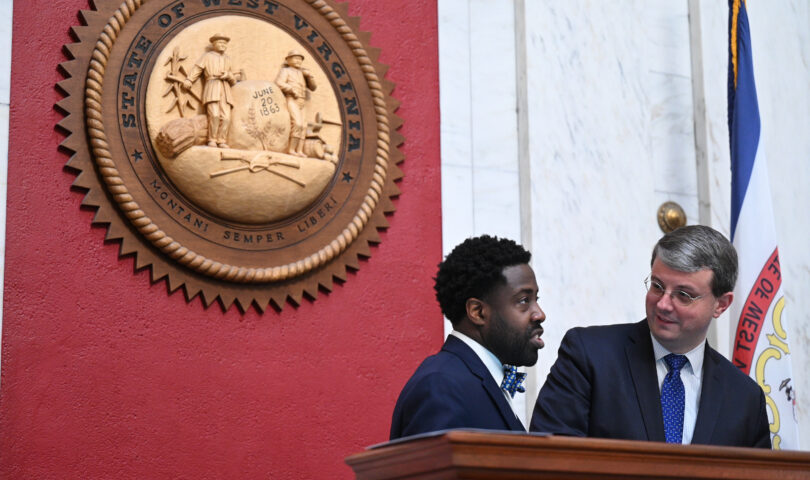This November, voters in West Virginia will head to the polls to decide on a groundbreaking measure that could make the state the first in the U.S. to constitutionally prohibit assisted suicide. Known as Amendment 1, the proposed constitutional amendment would officially ban the practice of physician-assisted suicide, an issue that has sparked heated debate across the nation.
If passed, Amendment 1 would prevent doctors in West Virginia from providing lethal doses of medication to terminally ill patients who wish to end their own lives. This would place West Virginia in sharp contrast to the nine states and the District of Columbia where assisted suicide, also referred to as “death with dignity,” is legal.
A Landmark Moment for West Virginia
West Virginia lawmakers first proposed Amendment 1 earlier this year, with strong backing from conservative groups, religious organizations, and many healthcare professionals. The proposed ban has gained momentum as part of a broader movement to protect the sanctity of life and prevent what opponents describe as a slippery slope toward the devaluation of vulnerable populations, such as the elderly and disabled.
Supporters of the amendment argue that legalizing assisted suicide could lead to coercion, where patients feel pressured to end their lives due to financial or emotional burdens on their families.
“West Virginians value life at every stage, and Amendment 1 reflects our commitment to protecting life, especially the most vulnerable among us,” said State Senator Mark Maynard, a leading advocate of the measure. “We must ensure that no one in our state feels like their life is not worth living, and that our healthcare system focuses on providing care and comfort, not death.”
Religious leaders in the state, including leaders from the West Virginia Council of Churches, have also thrown their support behind the amendment, framing it as a moral issue. “Life is a gift from God, and it is not our place to take it away,” said Reverend Janice Davis, a prominent advocate of the amendment. “We must support people in their most vulnerable moments, offering compassion and care, not facilitating their death.”
Opposition to the Ban
Opponents of Amendment 1, however, argue that the measure would take away a compassionate option for terminally ill patients who are suffering and wish to die on their own terms. They contend that physician-assisted suicide, when carefully regulated, provides a humane way to alleviate suffering for individuals facing unbearable pain with no hope of recovery.
Groups like Compassion & Choices, a national nonprofit organization advocating for the legalization of medical aid in dying, have been actively campaigning against Amendment 1. “This amendment would strip West Virginians of their right to make deeply personal end-of-life decisions,” said Kim Callinan, president of Compassion & Choices. “Instead of protecting patients, this measure would force people to endure prolonged suffering against their will.”
Medical professionals are also divided on the issue. While some physicians see assisted suicide as a compassionate option for patients with terminal illnesses, others believe it undermines the core principle of medical ethics: do no harm.
Dr. Elaine Simmons, a West Virginia oncologist, shared her concerns about the potential passage of the amendment. “I’ve seen patients in the final stages of life, where pain is unbearable, and there’s no quality of life left,” she said. “I believe they should have the right to choose a peaceful and dignified death if that’s their wish. Amendment 1 would take away that option.”
A National Conversation on Life and Death
The upcoming vote in West Virginia comes amid a broader national debate over assisted suicide. States like Oregon, Washington, and California have passed laws allowing terminally ill patients to request lethal medication, citing the importance of personal autonomy and dignity in end-of-life care. These laws typically require multiple safeguards, including a terminal diagnosis, mental competency, and confirmation from two physicians to ensure that the decision is voluntary.
Advocates of assisted suicide often point to these laws as examples of carefully regulated systems that provide compassionate choices for patients. However, those opposed to the practice warn that even with safeguards, there is the potential for abuse and unintended consequences.
West Virginia’s decision to bring the issue to voters reflects the ongoing clash between two deeply held beliefs: the right to life and the right to die with dignity. The result of the November vote will likely reverberate across the country, influencing other states considering similar measures.
The Path to November
With the election only weeks away, both sides of the debate are ramping up their campaigns. Pro-life organizations have launched a series of advertisements and rallies encouraging West Virginians to vote in favor of the amendment, while advocates for death with dignity are hosting town halls and educational events to explain their opposition.
The outcome of the vote is expected to be close, with polls showing that West Virginians are divided on the issue. As November approaches, the debate over Amendment 1 is sure to intensify, as voters weigh the ethical, legal, and personal implications of the proposed ban.
Regardless of the outcome, West Virginia’s decision on Amendment 1 will mark a historic moment in the national conversation about end-of-life care, personal autonomy, and the role of the state in regulating life-and-death decisions. For now, all eyes are on West Virginia as it prepares to potentially become the first state in the nation to constitutionally prohibit assisted suicide.
